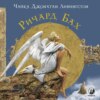Читать книгу: «Best Stories of the 1914 European War», страница 8
“JACQUES DID HIS DUTY!”
Details of how his son was wounded have just reached the French Foreign Minister, Delcassé.
Lieutenant Jacques Delcassé, his sword in one hand and a revolver in the other, was charging at the head of his company when a German bullet struck him down. Gallantly struggling to his feet, Delcassé again dashed at the enemy, but a second ball placed him out of action.
To his wife, who arrived at Bordeaux to-day, the Foreign Minister said: “I’m proud of Jacques; he did his duty.”
“THE SCOUNDRELS!”
In the hospital at Bordeaux a soldier of the Second French Colonial Regiment was operated upon for a horrible wound in the thigh, caused by an explosive bullet. The orifice made by the bullet on entry was clean and narrow, whereas at the exit it was several centimeters wide, while the intermediate flesh was a mass of bruised and torn tissues, which were entirely destroyed. As the surgeon cut away the flesh the wounded man remarked:
“The blackguards! To think that I served two years in Morocco without a scratch, and now these German scoundrels have served me like this.”
MOVIE THRILLER OUTDONE
Here are two instances of individual French heroism:
“In a village on the point of occupation by German cavalry, a French soldier, the last of his regiment there, heard a woman’s cries. He turned back. At that moment a Uhlan patrol entered the village. The soldier hid behind a door and then shot down the first officer and then one of the soldiers.
“While the rest of the patrol hesitated, the soldier rushed out, seized the officer’s riderless horse, swung himself into the saddle and, hoisting the woman behind him, rode off amid a hail of bullets. Both reached the French lines unscathed.
“The second act of bravery cost the hero his life. On the banks of the Oise a captain of engineers had been ordered to blow up a bridge in order to cover the French retreat.
“When a detachment of the enemy appeared on the other side of the bridge the officer ordered his men back and then himself running forward fired the mine with his own hand, meeting a death which he must have known to be certain.”
DUG WAY TO SAFETY
A remarkable story of a soldier caught in a trap amid a rain of bullets, who dug his way to safety with his bayonet, was told in a hospital at Petrograd.
“A body of Russian troops was lured into the open through the flying of a white flag,” the soldier said, “when the bullets began to rain upon us. There was no cover in sight and I began to dig a hole with my bayonet. Either it would be my grave or my protection from the rifle fire.
“One bullet hit me, but I continued to dig. A second bullet hit me and this went clear through my lungs.
“The hole was half finished when a third bullet struck me in the leg. Finally I finished the hole and tumbled into it just as a fourth shot hit my other leg. I became unconscious and remembered nothing more until I woke up here.”
BRITISH DRAGOON’S EXPLOIT
A Reuter despatch from Paris says that a British soldier of the 6th Dragoons, suffering from bullet wounds in the hip, told of a grim incident at Compiègne.
The night before the battle the dragoon’s squadron was on outpost duty. Some firing had been heard, and he rode ahead of his squadron to find out what was happening, in the belief that French cavalry were engaged with the Germans close at hand.
The dragoon cantered along the moonlit road, until suddenly, in the shadow of the trees, he found himself in the midst of a group of horsemen – Germans. He had a carbine across the neck of his horse and fired point blank into the breast of a German trooper, with whose horse his own collided. The German was as quick with his weapon and both men fell to the ground, the German dead, the British soldier with a bullet through his hip.
An instant later the British squadron came clattering up and cut the German detachment – about thirty strong – to pieces.
SAVED HIS COMMANDER
In the orders of the day made public at Bordeaux numerous cases of bravery are cited. Two of them follow:
“Private Phillips of the Second Battalion of riflemen, during the battle ran out under fire to his captain, who was mortally wounded, and brought him in. Private Phillips went eight times to the firing line under violent shelling to give water to the wounded and he also assisted his commandant to rally riflemen dispersed by the enemy’s fire.
“Bugler Martin of the 14th Hussars, a member of a patrol commanded by Lieutenant de Champigny, in a fierce skirmish with a German patrol, seeing his commander wounded and captured, charged the German officer who had made a prisoner of De Champigny, killed him with his own hand and rescued De Champigny.”
GETTING REAL CRUSTY
“Vienna Bakeries” all over France have now changed their title to “Parisian Bakeries,” says a Paris correspondent.
BATTLES QUITE THE THING
When fighting was general about Brussels smart women of the Belgian capital motored out to watch battles in the cool of the afternoon as gaily as though going to the races, says an Ostend correspondent.
CHILD PLAYED AMID DEAD
Here is part of the description of scenes on the battlefields on the banks of the Marne as told to a Paris correspondent by an eyewitness:
“The greatest optimism reigns. I saw the remains of blown-up bridges and hundreds of lifeless horses and mules in the deserted trenches. Dead soldiers had been buried and the wounded cared for, and some priests were throwing burning brushwood on carcasses.
“In the blazing sunshine not far away I saw a little boy, son of a Turco – for the Turcos often bring their wives and children on or near the battlefield.
“He had a rifle of some wounded soldier which he was hugging in his little arms as if it were a toy. He was perfectly happy surrounded by evidences of death, destruction, suffering and blood. His father was lying wounded in a village close by. The child had strayed away.”
POISONING WATER
A Petrograd correspondent says:
“Wounded officers who have returned from East Prussia charge that the Germans are poisoning the water. A woman brought water to soldiers and they immediately became ill. Their officer tendered the water to a German, who refused to drink it, and when analyzed it was found to have contained arsenic.”
TRIED TO ROW TO WAR
Four gunners of the Royal Field Artillery at Folkestone had an experience which has set all the Channel town to laughing, says a London correspondent. The gunners recently hired a small boat and rowed out into the Channel.
The following morning a boat from Calais, the French city just across the Channel, swung the missing rowboat down to the dock at Folkestone and the four gunners sheepishly followed.
Nervous because of the delay in getting to the scene of war, the four men had decided they would row to Calais. They had failed to provide food and water and found the thirty-mile pull under a hot sun a task they had not expected. Finally they hailed a French fishing vessel.
DECORATED ON BATTLEFIELD
A correspondent in Limoges cables:
“On a train loaded with wounded which passed through here was a young French officer, Albert Palaphy, whose unusual bravery on the field of battle won for him the Legion of Honor.
“As a corporal of the 10th Dragoons at the beginning of the war Palaphy took part in the recent violent combat with the Germans. In the thick of the battle the brigadier, finding his colonel wounded and helpless, rushed to his aid. Palaphy hoisted the injured man upon his shoulders, and under a rain of machine gun bullets carried the colonel safely to the French lines. That same day Palaphy was promoted to be a sergeant.
“Shortly afterward, although wounded, he distinguished himself in another affair, leading a charge of his squad against the Baden Guard, whose standard he himself captured. Wounded by a bullet which had plowed through the lower part of his stomach and covered with lance thrusts, he was removed from the battlefield in the night. Then he learned that he had been promoted to be a sub-lieutenant and nominated chevalier in the Legion of Honor.
“This incident of decorating a soldier on the battlefield recalls Napoleonic times.”
HUSSAR LED 30 °CAPTIVE
The following incident is told by a Paris correspondent:
“Near a little village in Lorraine a German lieutenant was effectively using his artillery on the French. A Hussar had been taken a prisoner to the village, which was defended by 300 Germans. Under cover of their own artillery fire the French infantry advanced irresistibly.
“The German officer, who saw that he could not hold out, asked the Hussar’s advice. Of course the French soldier answered, ‘If you resist you’re all dead.’ ‘Yes,’ says the German, ‘but if we surrender, still we will all be shot.’ The Hussar assured him that France respects the laws of war, that prisoners are well treated and every one of them would be safe. The German officer quickly resolved to stop his resistance.
“Then the brave little French Hussar, with the German officer beside him and followed by 300 pointed helmets, marched to the first French officer and handed over his prisoners.”
WHAT’S WAR TO DICTIONARY?
A Paris correspondent cables: “Ten members attended the French Academy’s regular meeting this week and discussed the word ‘exode’ for the dictionary. ‘Exode’ means exodus.
“Marcel Prévost, the writer, who is an artillery captain, gave his confrères a description of the Paris defenses.”
HAYFORK PART OF DINNER SET
“The scene is a village on the outskirts of Muelhausen,” says a correspondent in Bordeaux. “A lieutenant of German scouts dashes up to the door of the only inn in the village, posts men at the doorway and entering, seats himself at a deal table.
“He draws his saber and places it on the table at his side and orders food in menacing tones.
“The village waiter is equal to the occasion. He goes to an outhouse and fetches a hayfork and places it at the other side of the visitor.
“ ‘Stop, what does this mean?’ roars the lieutenant furiously.
“ ‘Why,’ says the waiter innocently, pointing to the saber, ‘I thought that was your knife, so I brought you a fork to match.’ ”
LAST DRINK KILLS HIM
Says a Paris correspondent:
“One Parisian, seeing his supply of absinthe was reduced, with no chance for obtaining more, drank his last bottle almost at one drink and died.”
SONS IN EACH ARMY
The plight of a Swiss woman is told by a Bordeaux correspondent:
Living at Basel she married a German. Two sons were born to them. Afterward she married a Frenchman and had two more sons. All four of her sons were called to arms, two on each side.
The mother has just received news that all four have fallen in battle.
KAISER IN TEARS AS HE SIGNED WAR ORDER
Kaiser Wilhelm wept when he signed Germany’s declaration of war against Russia, according to Liston Lewis, a lawyer of New York. Mr. Lewis said his information came from one of the highest officials in Germany.
“We reached Berlin on July 29,” he said. “There were stirring scenes there then. The enthusiasm of the people was deep. They were firm in the conviction that England, France and Russia were determined to make an aggressive war on Germany.
“An intimate friend of the Kaiser told me that Wilhelm did not believe such a thing as a general European war possible. He had been told by the German Ambassador in Petrograd that the Russian army was not mobilizing in the West, and had no intention of mobilizing.
“Not until the members of the General Staff put proof of the aggressive movements of the Russian army before him and insisted that he would be responsible for what might follow unless he declared war would the Kaiser believe Russia’s perfidy. Then he asked to be left alone for an hour.
“At the expiration of that time he was found in tears. ‘I can’t do otherwise,’ he remarked as he signed the declaration of war.”
KAISER’S OWN MOVIES
Representatives of the German Government have arrived in Copenhagen with a series of film war pictures taken under the Kaiser’s immediate and personal supervision. These pictures, which already have been exhibited to a private gathering of press representatives, show the bright side of the German army, its appearance when marching and the magnificence of its equipment and organization.
The heroism of the Kaiser himself is shown in a number of heroic attitudes. One picture is headed, “The Kaiser Under Fire,” but it shows his Imperial Majesty as merely looking through field glasses and gives no indication of danger to him. Another shows the Kaiser’s luxurious headquarters, erected at a safe distance behind the firing line, consisting of a number of magnificently furnished asbestos huts, in which his Majesty can live as comfortably and luxuriously as in his palace at Potsdam.
ONE FRENCHMAN DRIVES OFF FIFTEEN
A French private soldier of the name of Baba Couli-Baly of the 45th Infantry has been mentioned for his coolness and accurate rifle fire. While guarding a train of automobiles he put fifteen German cavalrymen to flight.
Second Lieutenant Boquet and Sergeant Major Mercoer of the same regiment have been mentioned in orders for their daring in effecting the capture of a German officer attached to the General Staff who was found making a reconnoissance in an automobile.
SANG FOR THEIR DINNER
Two Americans arrived at Ostend yesterday battered and haggard, but wherever they met Germans the waving of the big American passport secured them politeness.
At Sottegehem they came upon some German officers in a wayside tavern. A lieutenant called for a song in English. One of the Americans obliged with “You Made Me Love You, I Didn’t Want to Do It.”
The lieutenant then said: “If you come from Brussels you must be hungry.”
The officer disappeared and returned with arms laden with ten pounds of butter and a hundred eggs. He then kindly offered to steal two bicycles to relieve them from walking.
GERMAN AIRMEN’S DARING
Two German aviation officers had to land near a Belgian village and were attacked by the local residents, who armed themselves with shotguns. One of the Germans succeeded in seizing the village magistrate as a hostage, and while he kept his pistol at that official’s head his companion repaired the motor. They then made the magistrate mount the aeroplane, which luckily was able to ascend with three passengers, and sped away.
Two other German airmen whose aeroplane was wrecked when it came down were dazed and stunned from their fall. Immediately they were attacked by a group of French peasants armed with pitchforks and scythes. The Germans held these men at bay with their revolvers until they reached the dense woods, in which they hid.
Peasants and soldiers hunted them systematically for days. They spent anxious hours crouching in holes like rabbits, while their pursuers fired shotguns and rifles into every suspicious thicket. They lived on beets and the only water they had was dew, which they sucked from leaves. Their minds almost gave way under the strain and they were burning with fever when a German patrol found them.
PRINCE JOACHIM’S BRAVERY
From an officer who was with Prince Joachim when he was wounded the following description of the incident has been obtained:
“It was during the hottest part of the battle, just before the Russian resistance was broken, that the Prince, who was with the staff as information officer, was despatched to the firing line to learn how the situation stood. He rode off with Adjutant-Captain von Tahlzahn and had to traverse the distance, almost a mile, under a heavy hail of shell and occasional volleys.
“As the Russian artillery was well served and knew all the ranges from previous measurements, the ride was not a particularly pleasant one, but he came through safely and stood talking with the officers when a shrapnel burst in their vicinity. The Prince and the Adjutant were both hit, the latter receiving contusions on the leg, but the shot not penetrating.
“To stop and whip out an emergency bandage, which the Prince, like every officer and private, carries sewed inside the blouse, and bind it around the thigh to check the bleeding was the work of only a moment. It was a long and dangerous task, however, to get him back to the first bandaging station, about a mile to the rear, under fire, and from there he was transported to the advanced hospital at Allenstein, where he remained until he was able to travel.”
CAUSE OF AERSCHOT TRAGEDY
Under date of Antwerp, Sunday, September 20, 1914, the London Standard published the following story from a correspondent:
“When the German troops under General von Boehn entered Aerschot the burgomaster awaited the Germans at the entrance to the town, and to General von Boehn made offers of hospitality.
“The General was gracious enough, and said that so long as everybody in the place showed the quietest demeanor the town and the lives of those in it were safe; if not, the reprisals would be pitiless. The burgomaster offered the hospitality of his own house to the General and his officers, and this was also accepted.
“General von Boehn, with his chief of staff and another officer, took up their quarters under the roof of the mayor. At night the General and his officers dined with the family, consisting of the burgomaster and his wife and their son and daughter.
“The meal progressed with every sign of geniality, and the conduct of the officers was perfectly respectful and normal, but toward the end of the dinner they drank very freely. By the time everybody had retired the three Germans were all very much the worse for drink.
“In the early hours of the morning the members of the household were roused by a shriek from the room occupied by the daughter. The son rushed in and found his sister struggling in the arms of the chief of staff.
“The young man, aroused to a frenzy, attacked the scoundrel. There was a fierce struggle, which ended in the son shooting the chief of staff.
“The tragedy was witnessed by most of the household, but the shot did not arouse the General and the other officer, drunkenly asleep in their beds. The terrified household had to wait until morning for the dénouement of the tragedy.
“The next morning the body of the chief of staff was discovered by the officer. The General was terribly cold in his wrath.
“ ‘The price must be paid,’ he said.
“The burgomaster, his son and two men-servants were put against the wall and shot.
“The carnage in the streets, with burning, hacking and stabbing, followed.”
U.S. TARS SING BRITONS’ HYMN
A correspondent in France describes an incident at Havre when the United States cruiser Tennessee lay in the harbor and a British transport, the decks of which were thronged with soldiers, passed her. The American cruiser dipped the Stars and Stripes, and suddenly the British Tommies broke into “Rule, Britannia.”
“Then,” says the correspondent, “an amazing thing happened. I heard and was thrilled by it. The gallant American sailors took up the rolling chorus – ‘Rule, Britannia! Britannia rules the waves. Britons, never, never, never shall be slaves!’ It was the most perfect act of brotherliness which I have ever witnessed.”





















